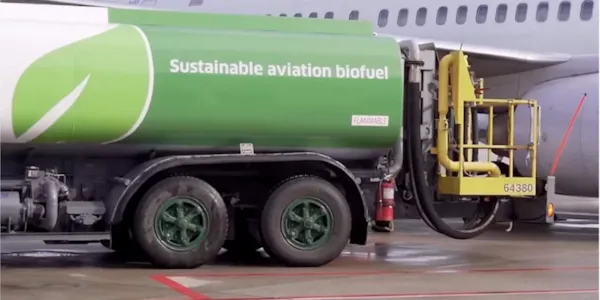Honeywell develops technology to convert ethanol to jet fuel

Honeywell has developed an ethanol-to-jet fuel (ETJ) processing technology to convert corn-based, cellulosic, or sugar-based ethanol into sustainable aviation fuel (SAF). The company says the process could reduce greenhouse gas (GHG) emissions by 80% on a total lifecycle basis, compared to petroleum-based jet fuel.
Most current SAF use vegetable oils, animal fats and waste oils, which have a limited supply base. The source of ethanol is more available and economically viable, Honeywell said in a statement from the company.
“Honeywell pioneered SAF production with its Ecofining™ technology, and our new ethanol-to-jet fuel process builds on that original innovation to support the global aviation sector’s efforts to reduce GHG emissions and meet SAF production targets with an abundant feedstock like ethanol,” said Barry Glickman, vice president and general manager, Honeywell Sustainable Technology Solutions. “Honeywell’s ethanol-to-jet process, when used as a standalone or when coupled with Honeywell carbon capture technology, is ready now to provide a pathway to lower carbon-intensity SAF.”
In 2021, the Biden Administration announced its SAF Grand Challenge for the U.S. aviation fuel supply sector to produce at least three billion gallons of SAF per year by 2030 and reduce emissions from aviation by 20%, with an eventual goal of meeting 100% of U.S. aviation fuel demand with SAF by 2050.
Petroleum refiners and transportation fuel producers can benefit from Honeywell’s ETJ design which is purpose-built to enable the conversion of current or idle facilities into SAF production plants, potentially maximizing the use of exiting sites for SAF production to meet the growing market demand.



Recent Comments